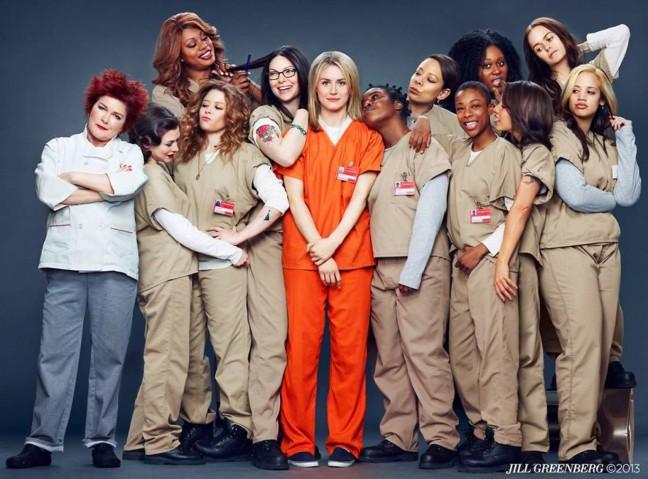Imagine, for a moment, that the Academy Awards didn’t exist. And imagine, though this might be even more of a stretch, that no other awards show – real or imagined – popped up to fill what would admittedly be a gaping void in the entertainment capitalist complex. No premier red carpet event of the year for actresses to show off their absurdly expensive gowns. No venue for overheated E! reporters to shout excitedly into the camera, “I’m here with Topher Grace!” as if that were the crowning achievement of their journalistic careers. No sinking feeling that, well, that actually might be the crowning achievement of their journalistic careers. No follow-up questions like, “And we hear you have some exciting news for us tonight,” as if the very thought didn’t completely blow the entire cover off the fraud that is entertainment reporting. No wondering whether the paparazzi are the ones doing it right; after all, they occasionally get original, unregurgitated stories.
No bad jokes by the irrelevant hosts during years in which the host is irrelevant; no watered-down ones during years in which the host is edgy. No reaction shots of a best actor nominee weakly faking laughter as if he’s a community theater newbie. No suffering through the comedic shoehorning of an entire year of movies into a couple flippant comments about industry trends. No award presenters of questionable reading ability. No follow-up jokes at Scarlett Johansson’s expense. No weirdly calm voice-over reminding us that this is Scorsese’s first win. No desperate fast-talking over the swelling orchestra. No little statues made out of, what else, gold, to remind viewers just how much more famous and rich and happy and successful everyone who has even made it into that auditorium is than everyone else watching at home, and damn it, maybe if they offered solid gold awards for elementary school teaching, little Timmy wouldn’t be working as a temp and could afford to send a little something home to his mother now and then.
Yeah, that world sounds like an all-right place to be. But here’s the thing: Never in the 84-year history of the Academy Awards has anyone been forced to watch. OK, maybe for a job. But even that, I would guess, is rare, and furthermore, those lucky enough to be paid for consuming entertainment are really in no position to question the societal value of that entertainment – the effectiveness of it is up for evaluation, to be sure, but claiming that the Oscars is some sort of mirror that reflects the ugly, stupid face of our irreparably perverted society by way of highlighting its rough yet gilded edges is an argument that seems like the type of smart, easy, home-run contrarian viewpoint that oh-so-rarely presents itself but then peters out into a collection of narrowly avoided run-on sentences once the writer starts to unspool the logic behind the claim.
So I won’t do that.
Here’s what I’ll point out instead. Art has an important function in our society, as does entertainment. The two don’t always coincide, but one place where they often do is the feature-length Hollywood movie. Where art’s purpose is mercurial – it captures an era or a feeling; it provokes emotion or action; it demonstrates talent or mastery – entertainment’s is self-defined. And as such, it’s incredibly easy (given a sizable budget) to create good entertainment that lacks artistic value. Millions of people will pay $12 dollars a seat for an hour and a half of the stuff, and the return on investment is virtually guaranteed.
The outlook for highly artistic films and performances is much less certain, especially when the entertainment value of said films is not immediately apparent. Knowing nothing other than these descriptions, which would you rather see: a new installment in a highly-successful series of edge-of-your-seat thrillers that, thanks to a special pair of glasses, appears to protrude from a screen into the theater, or a black-and-white callback to a presumed obsolete technology that eschews spoken words for mood-setting orchestrals? I only ask because “Saw 3D” had twice the box-office take of “The Artist.”
And if not for shows like the Academy Awards, that disparity would probably be even higher. For all its oddities and absurdities, for its multitude of problems, America’s most talked-about awards show serves a very important function – it often manages to highlight Hollywood movies (not, generally, indies or smaller-scale production, but then, that’s not really its role) that have a higher degree of artistic achievement than their equally entertaining peers.
Imagine, for a moment, that there were no recognition for that ambition. No challenging roles taken on by the brightest acting talents. No tricky camera shots attempted by an imaginative crew. No big event to get people talking about movies that broke that mold, to maybe encourage them to head to theaters seeking something other than surround sound, stale popcorn, random gunshots and re-hashed storylines.
What I’m saying is: The Academy Awards aren’t perfect, but they are better than the alternative.













